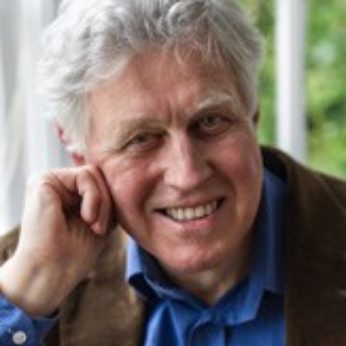Composer: David Matthews (b. 1943)
Performance date: 03/07/2015
Venue: St. Brendan’s Church
Composition Year: 2007
Duration: 00:19:05
Recording Engineer: Richard McCullough, RTÉ lyric fm
Instrumentation Category:Small Mixed Ensemble
Instrumentation Other: T-solo, pf, 2vn,va,vc
Artists:
James Gilchrist -
[tenor]
Anna Tilbrook -
[piano]
Vanbrugh Quartet (Gregory Ellis, Keith Pascoe [violins] Simon Aspell [viola] Christopher Marwood [cello]) -
[quartet]

One Foot in Eden was commissioned by Convivium
Music of Lincoln. When this piece was commissioned, Viv McVeagh, the
Adminstrator of Convivium Music, suggested that I might consider setting a poem
by Edwin Muir called The Difficult Land.
After a lot of thought, I decided that I could not set this particular poem,
but I found Muir – whom I knew something about but had never read – to be a
most sympathetic writer, and I chose three other poems by him: one of his best
known, One Foot in Eden; an early
poem, Autumn in Prague; and one of
his last, Sunset, to form a short
cycle.
Edwin Muir [1887-1959] was born and spent his
childhood in Orkney. He lived in Prague after the First World War and he and
his wife Willa were the first translators of Kafka into English. Margaret
Drabble has noted two recurrent themes in his poetry: the dream journey though time and place and the myth of an Eden threatened by various forms of catastrophe or
expulsion. I have not used the piano quintet throughout the piece: after an
initial string pizzicato, the first
song, One Foot in Eden, has just a
piano accompaniment; the string quartet enters again at the end of the song,
and an interlude for piano quintet leads to the second song, Autumn in Prague, written for the full
forces. The quintet continues with a second interlude, a passacaglia, which brings the subdued emotions of the previous song
to the forefront. The last song, Sunset,
is accompanied by string quartet. At its conclusion the piano re-enters for a
meditative postlude on some of the material of the first song, in particular
the lines Strange blessings never in
Paradise/ Fall from these beclouded skies, which could stand as a motto for
the piece.
Copyright © 2024 West Cork Music. All rights reserved.
Designed and developed by Matrix Internet